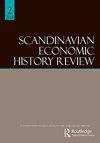19世纪70年代至90年代挪威的保险卡特尔和国家政策
IF 1
Q4 ECONOMICS
引用次数: 0
摘要
本文分析了挪威人寿保险和非人寿保险两个相关卡特尔的长期性质。在卡特尔研究中很少研究保险卡特尔和国家的作用,尽管这种卡特尔很常见。在挪威保险业形成的几年里,卡特尔在建立信任和稳定方面发挥了重要作用。在人寿保险中,保费有时提前几十年支付。降低高昂的交易成本也可以解释国家对火灾和非人寿保险卡特尔的长期支持。第一次世界大战后,当国家成为竞争对手时,国家对火灾保险卡特尔的政策发生了变化,尽管其法规并没有直接削弱非人寿保险卡特尔,但由于1982年的合并,该卡特尔最终崩溃。从20世纪20年代到80年代,国家对人寿保险卡特尔的支持力度很大。到那时,很难区分国家部门监管和卡特尔利益。20世纪80年代中期,新的国家法规废除了人寿保险卡特尔。本文章由计算机程序翻译,如有差异,请以英文原文为准。
Insurance cartels and state policies in Norway, 1870s–1990s
ABSTRACT This paper analyses the prolonged nature of two related cartels in life and non-life insurance, in Norway. Insurance cartels and the role of the state are rarely studied in cartel research, although such cartels are common. Cartels played an important role in creating trust and stability in the formative years of the Norwegian insurance industry. In life insurance, premiums are paid sometimes decades in advance. Reducing high transaction costs can also explain the state’s prolonged support of the fire and non-life insurance cartels. State policy towards the fire insurance cartel changed after World War I, when the state became a competitor, although its regulations did not directly weaken the non-life insurance cartel, this finally collapsed due to mergers in 1982. State support for the life insurance cartel was strong from the 1920s to the 1980s. By then it was difficult to differentiate between state-sector regulations and cartel interests. The life insurance cartel was dismantled by new state regulations in the mid-1980s.
求助全文
通过发布文献求助,成功后即可免费获取论文全文。
去求助
来源期刊

SCANDINAVIAN ECONOMIC HISTORY REVIEW
ECONOMICS-
CiteScore
1.60
自引率
16.70%
发文量
20
期刊介绍:
Scandinavian Economic History Review publishes articles and reviews in the broad field of Nordic economic, business and social history. The journal also publishes contributions from closely related fields, such as history of technology, maritime history and history of economic thought. Articles dealing with theoretical and methodological issues are also included. The editors aim to reflect contemporary research, thinking and debate in these fields, both within Scandinavia and more widely. The journal comprises a broad variety of aspects and approaches to economic and social history, ranging from macro economic history to business history, from quantitative to qualitative studies.
 求助内容:
求助内容: 应助结果提醒方式:
应助结果提醒方式:


